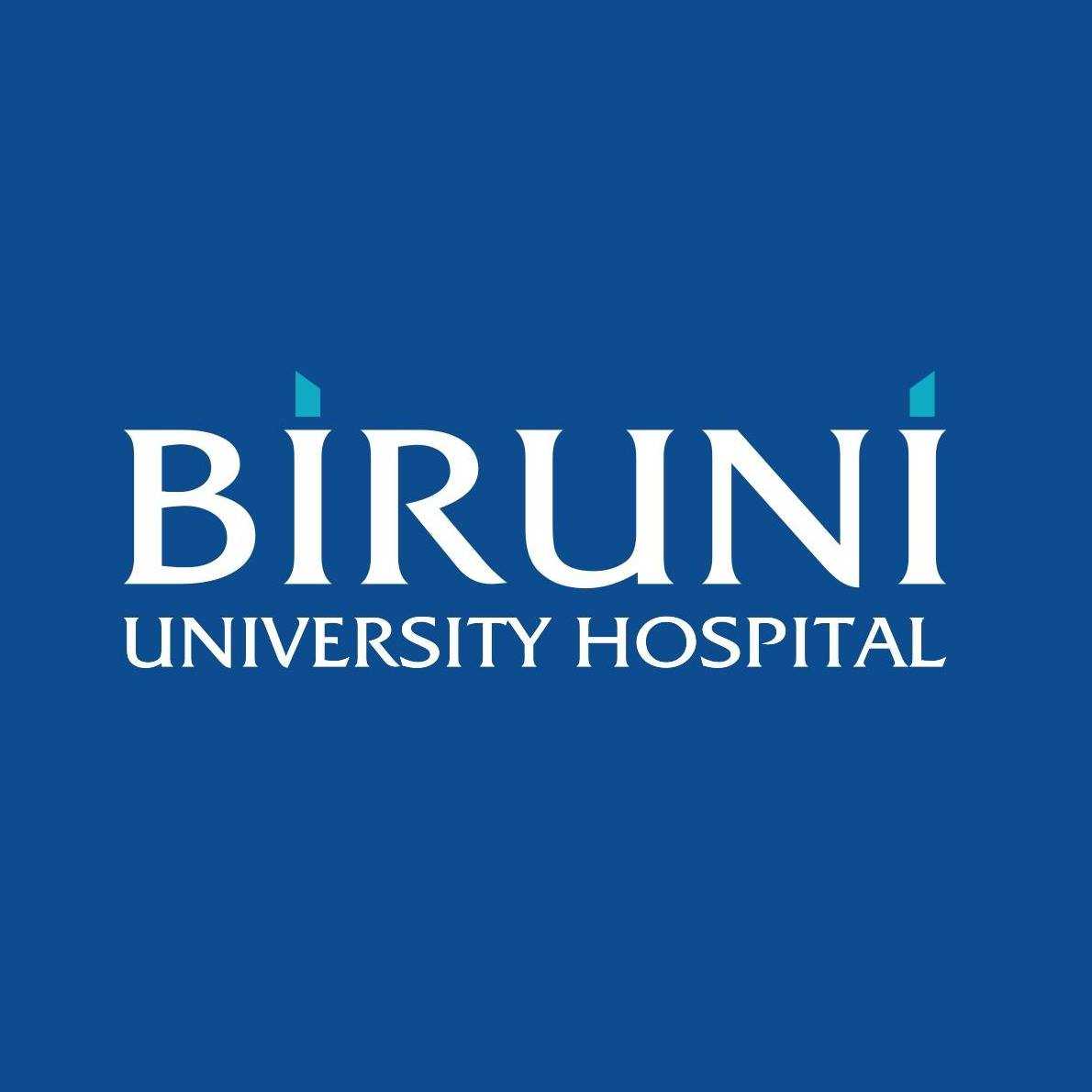Gastric Sleeve Revision in Turkey: A Complete Guide
.jpg)
Considering gastric sleeve revision is a significant decision, especially when looking at options abroad. You might be wondering about the safety and quality of medical care in places like Turkey, which has become a prominent destination for medical tourism.
The good news is that for many patients, gastric sleeve revision in Turkey is indeed a safe and effective option, provided you do your research and choose the right medical facility and surgical team. Many hospitals there are equipped with state-of-the-art technology and employ highly qualified surgeons who have extensive experience in bariatric procedures.
The key to a safe and successful outcome lies in thorough preparation and selecting a clinic that prioritizes patient safety, follows international best practices, and offers comprehensive pre- and post-operative care.
Turkey's appeal for medical tourism, particularly for weight loss surgeries, stems from its ability to offer advanced medical treatments at a fraction of the cost found in many Western countries, without compromising on quality. This detailed guide will help you understand the factors contributing to the safety of gastric sleeve revision in Turkey and answer all your pressing questions.
What makes Turkey a popular destination for gastric sleeve revision?
Turkey has emerged as a leading destination for medical tourism, and gastric sleeve revision is a significant part of this trend. One of the primary drivers is the substantial cost savings compared to countries like the US or the UK, often without sacrificing the quality of care.
Many Turkish hospitals boast JCI (Joint Commission International) accreditation, indicating they meet stringent international standards for patient safety and quality. Beyond cost, the expertise of Turkish surgeons plays a crucial role. Many bariatric surgeons in Turkey have received training internationally and possess extensive experience performing complex weight loss surgeries.
The medical infrastructure is modern, with hospitals equipped with advanced technology and facilities designed for patient comfort and efficient recovery. Furthermore, many clinics offer comprehensive packages that include accommodation, transfers, and language support, making the entire experience smoother for international patients.
What are the reasons for needing a gastric sleeve revision?
A gastric sleeve revision is typically considered when the initial sleeve gastrectomy does not yield the expected results or leads to new, problematic health issues. It's important to understand that no surgery guarantees lifelong results, and bariatric surgery is no exception. Patients may require a revision for several key reasons:
- Insufficient Weight Loss or Weight Regain: Over time, the stomach pouch can stretch, or patients may not adhere to dietary guidelines, leading to inadequate weight loss or regaining lost weight.
- Severe Gastroesophageal Reflux Disease (GERD): While some reflux is common after a sleeve, severe, persistent GERD that doesn't respond to medication can necessitate a revision, often converting the sleeve to a bypass.
- Sleeve Dilation: The gastric sleeve can expand over time, reducing its restrictive effect and contributing to weight regain.
- Stricture: A narrowing of the sleeve can cause difficulty eating, nausea, and vomiting.
- Fistula: A rare but serious complication where a leak develops from the staple line.
- Persistent Nausea or Vomiting: Chronic digestive issues that impact quality of life.
Understanding the specific reason for revision is crucial as it dictates the type of revision surgery that will be most appropriate, such as re-sleeving, conversion to a gastric bypass, or duodenal switch.
What are the risks associated with gastric sleeve revision surgery?
Like any surgical procedure, gastric sleeve revision carries inherent risks, which can sometimes be slightly higher than the initial surgery due to existing scar tissue and altered anatomy. It's vital for patients to be fully aware of these potential complications:
- Anesthesia Risks: Reactions to medication, breathing problems.
- Bleeding: Internal bleeding during or after surgery.
- Infection: At the surgical site or internally.
- Leaks: A leak from the staple line is a serious complication requiring immediate intervention.
- Blood Clots: Deep vein thrombosis (DVT) or pulmonary embolism (PE).
- Strictures or Obstructions: Narrowing of the revised stomach or intestines.
- Nutritional Deficiencies: Depending on the type of revision, absorption issues can worsen, leading to deficiencies in vitamins and minerals.
- Failure to Achieve Desired Weight Loss: The revision may not always deliver the anticipated results.
Surgeons in Turkey, especially those in accredited facilities, take extensive measures to minimize these risks, including thorough pre-operative assessments, advanced surgical techniques, and comprehensive post-operative monitoring. Discussing all potential risks with your surgeon beforehand is a critical step in the decision-making process.
How do I choose a safe clinic and surgeon for gastric sleeve revision in Turkey?
Selecting the right clinic and surgeon is the most critical step in ensuring a safe gastric sleeve revision in Turkey. Here's a comprehensive guide:
- Accreditation: Prioritize hospitals with international accreditations, such as JCI (Joint Commission International). This signifies adherence to global standards of patient care and safety.
- Surgeon's Experience and Credentials:
- Look for surgeons specializing in bariatric and metabolic surgery.
- Inquire about their experience specifically with revision surgeries.
- Verify their board certifications and professional affiliations (e.g., Turkish Surgical Association, IFSO - International Federation for the Surgery of Obesity and Metabolic Disorders).
- Ask about their success rates and complication rates.
- Facility and Equipment: Ensure the clinic has modern operating theaters, up-to-date equipment, and dedicated intensive care units (ICU) for bariatric patients.
- Comprehensive Care Packages: A reputable clinic will offer packages that include:
- Detailed pre-operative consultations and tests.
- Post-operative follow-up appointments.
- Dietary and psychological support.
- Accommodation and airport transfers for international patients.
- Translators or multilingual staff.
- Patient Testimonials and Reviews: Research independent reviews on platforms like Google, Trustpilot, or bariatric surgery forums. Look for consistent positive feedback regarding safety, care quality, and surgical outcomes.
- Transparency in Pricing: A reliable clinic will provide a clear, all-inclusive quote without hidden fees.
Don't hesitate to ask detailed questions during your initial consultation. A trustworthy clinic and surgeon will be transparent and willing to provide all the information you need to make an informed decision.
What is the average cost of gastric sleeve revision in Turkey?
One of the most appealing aspects of undergoing gastric sleeve revision in Turkey is the cost-effectiveness. The price can vary based on several factors, including the clinic's reputation, the surgeon's experience, the specific type of revision needed, and what's included in the package. Generally, you can expect the cost to be substantially lower than in the United States, Canada, or Western European countries. For instance, while a revision might cost upwards of $20,000-$30,000 in the US, in Turkey, the prices often fall within the range of $5,000 to $9,000. These packages frequently include:
- The surgical procedure itself.
- Anesthesia fees.
- Hospital stay (typically 3-5 nights).
- Pre-operative tests and consultations.
- Post-operative medications.
- Follow-up appointments during your stay.
- Transfers between the airport, hotel, and hospital.
- Accommodation for a specified number of nights.
- Interpreter services.
Always request a detailed breakdown of costs to understand exactly what is covered and to avoid any unexpected expenses. This transparency is a hallmark of reputable medical tourism providers.
What is the recovery process like after gastric sleeve revision?
The recovery process following a gastric sleeve revision is similar to the initial surgery but may vary slightly depending on the complexity of the revision. Understanding what to expect can help you prepare for a smoother recovery.
Immediately After Surgery (Hospital Stay)
You will typically stay in the hospital for 3 to 5 days. During this time, medical staff will monitor you closely for any complications. Pain will be managed with medication. You will begin a clear liquid diet, gradually advancing to thicker liquids under medical supervision. Early mobilization, such as short walks, is encouraged to prevent blood clots and aid recovery.
First Few Weeks (At Home)
Once discharged, you will continue your recovery at home. You will remain on a liquid diet, transitioning to pureed foods, and then soft foods over several weeks. It's crucial to follow your surgeon's and dietitian's instructions precisely. You should avoid heavy lifting and strenuous activities, but light walking is beneficial. Most patients can return to light work within 2-4 weeks, depending on their job requirements and how they feel.
Long-Term Recovery and Lifestyle Changes
Full recovery and adaptation to your new anatomy can take several months. This period involves continued adherence to a strict diet, regular exercise, and lifelong vitamin and mineral supplementation. Regular follow-up appointments with your medical team, including a dietitian and potentially a psychologist, are essential to monitor progress, address any nutritional deficiencies, and ensure long-term success. Your surgeon in Turkey should provide a clear post-operative care plan for you to follow upon returning home.
What are the success rates of gastric sleeve revision in Turkey?
The success of gastric sleeve revision, whether performed in Turkey or elsewhere, is measured not only by weight loss but also by the resolution or improvement of obesity-related health conditions (co-morbidities) and an enhanced quality of life. Reputable clinics in Turkey often report success rates that align with international benchmarks. While exact figures can vary depending on the type of revision and individual patient factors, many patients undergoing revision surgery in Turkey experience:
- Significant Additional Weight Loss: Patients often achieve substantial further weight reduction, particularly if the initial sleeve had dilated or if the revision is to a more malabsorptive procedure like gastric bypass.
- Resolution of Co-morbidities: Improvements or complete resolution of conditions such as type 2 diabetes, high blood pressure, sleep apnea, and high cholesterol.
- Improved Quality of Life: Enhanced mobility, energy levels, and overall well-being.
It's crucial to remember that the success of any bariatric surgery, including revision, heavily depends on the patient's commitment to lifelong dietary changes, regular exercise, and ongoing medical follow-up. Clinics in Turkey that specialize in bariatric surgery emphasize comprehensive patient education and support to maximize these success rates.
Are the hospitals in Turkey accredited for bariatric surgery?
Turkey has made significant investments in its healthcare infrastructure, leading to many hospitals achieving prestigious international accreditations, particularly in high-demand specialties like bariatric surgery. The most common and highly respected accreditation for Turkish hospitals is from the Joint Commission International (JCI).
JCI accreditation is a global benchmark for quality and patient safety, ensuring that accredited facilities meet strict standards across all aspects of healthcare delivery, from patient rights and infection control to surgical protocols and facility management.
Many bariatric surgery centers and departments within larger hospitals in Turkey hold this accreditation. When considering gastric sleeve revision in Turkey, always verify the accreditation status of the hospital you are considering. This information is usually prominently displayed on the hospital's website or can be confirmed directly with the clinic or through PlacidWay. Choosing a JCI-accredited facility provides an added layer of assurance regarding the quality and safety of your care.
What post-operative care and support can I expect in Turkey?
Comprehensive post-operative care is crucial for the success and safety of gastric sleeve revision. Reputable clinics in Turkey understand this and typically offer a structured support system for international patients.
During Your Stay in Turkey
- Hospital Follow-ups: Before discharge, you will have follow-up appointments with your surgeon and medical team to check your recovery progress, remove drains (if any), and provide instructions for the immediate recovery period.
- Dietary Guidance: You will receive detailed dietary instructions from a nutritionist or dietitian, outlining the stages of your post-operative diet (liquids to purees to soft foods) and recommended supplements.
- Medication Management: You'll be provided with necessary medications and clear instructions on their usage for pain management, acid reflux prevention, and other needs.
- Emergency Contact: Most clinics provide an emergency contact number or access to a medical coordinator for any concerns that arise during your stay.
- Language Support: Interpreters or multilingual staff are readily available to ensure clear communication between you and the medical team.
After Returning Home
While the immediate care is in Turkey, the long-term success depends on continued adherence to the post-operative plan. Clinics typically provide a detailed discharge summary and guidelines for your primary care physician at home. Some clinics also offer virtual follow-up consultations or connect you with support groups. It is your responsibility to arrange for ongoing nutritional and medical follow-up with your local healthcare providers. Ensure you discuss this transition of care thoroughly with your Turkish medical team before you leave.
What are the common types of gastric sleeve revision procedures?
When a primary gastric sleeve surgery doesn't achieve its intended goals, or if complications arise, several revision options are available, each tailored to the specific problem. The choice of revision depends on the initial issue, patient health, and the surgeon's expertise. The most common types of gastric sleeve revision procedures include:
- Re-Sleeve Gastrectomy (Re-Sleeve): If the original sleeve has stretched or dilated over time, a re-sleeve involves removing more of the stomach to restore the smaller pouch size. This is typically considered for patients who have experienced weight regain due to sleeve dilation and do not have severe reflux.
- Conversion to Roux-en-Y Gastric Bypass (RYGB): This is a frequent revision choice, especially for patients experiencing severe, intractable GERD after a sleeve, or those with significant weight regain where further restriction is needed. It converts the sleeve into a bypass, which reroutes food past a portion of the small intestine.
- Conversion to Duodenal Switch (Biliopancreatic Diversion with Duodenal Switch - BPD/DS): This is a more complex and aggressive revision procedure, usually reserved for patients with substantial weight regain or those with very high BMI who require maximum weight loss and metabolic improvement. It combines a more restrictive sleeve with a significant intestinal bypass.
- Sleeve Plication: In some cases, if dilation is mild, the stomach can be folded and sutured internally to reduce its volume without removing tissue. However, this is less common for revision.
Your surgeon in Turkey will evaluate your specific situation, including the reasons for revision and your overall health, to recommend the most appropriate and effective procedure for you.
Can I combine gastric sleeve revision with other procedures in Turkey?
While Turkey is known for offering a wide range of medical and cosmetic procedures, combining a gastric sleeve revision with other surgeries, especially major cosmetic ones, is generally approached with extreme caution. The primary concern is patient safety. Gastric sleeve revision is a significant operation that requires the body to focus its resources on healing and recovery. Adding another major surgery simultaneously increases the overall surgical time, anesthesia exposure, blood loss, and the risk of complications such as:
- Increased stress on the body and vital organs.
- Higher risk of infection.
- Prolonged recovery period.
- Potential for compromised outcomes for both procedures.
However, in some specific cases, a surgeon might consider combining very minor, related procedures if they do not significantly increase the risk profile. For example, a minor hernia repair might be addressed if it's in the surgical field and clinically necessary.
It is absolutely crucial to have an open and honest discussion with your bariatric surgeon in Turkey about any desire to combine procedures. They will conduct a thorough assessment of your health and the specific surgeries involved to determine if it is safe and advisable.
In most instances, they will recommend separating these procedures to prioritize your safety and the success of the revision surgery. We understand that navigating medical options can be complex. If you're looking for solutions related to medical tourism, healthcare services, or require assistance in finding accredited clinics and experienced surgeons for gastric sleeve revision or other procedures, explore PlacidWay's extensive resources today.


.png)




.png)
.png)
-(1).png)
.png)






Share this listing